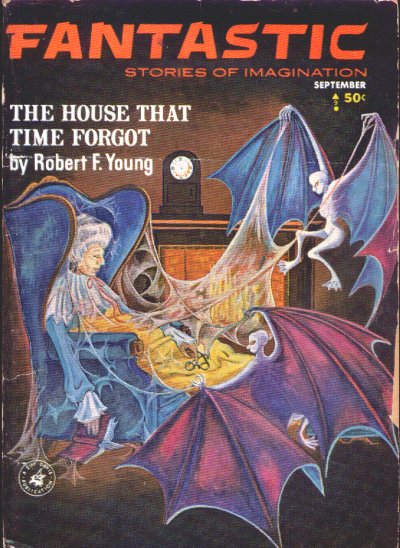

For instance, Sauron's ring in The Lord of the Rings represents evil and greed, and its destruction symbolizes the triumph of good over evil. Many fantasy stories contain elements meant to be read on a symbolic level. While fantasy is not strictly true, many fantasy writers argue that their stories convey truths about society and the human condition. The magical community in the Harry Potter series, for example, or the land of Dictionopolis in The Phantom Tollbooth, are intentionally distinct from the reader’s reality. While traditional myths and fairy tales operated within the rules of our world and often suggested that their magical elements might just be possible, modern fantasy clearly removes the reader from the reality of the modern world into a new realm, with its own laws and realities. Today, modern fantasy generally includes detailed world-building. Tolkien, author of The Hobbit and The Lord of the Rings, is credited with revolutionizing the genre by drawing it beyond the realm of children’s literature and winning over an adult audience.

George MacDonald’s The Princess and the Goblin and Lewis Carroll’s Alice in Wonderland are two of the most influential Victorian fantasies.


The course toward modern fantasy, however, began in the Victorian era when writers began developing their own distinct fantastical worlds, rather than building on established cultural tradition. The basic elements of fantasy have existed for centuries, and fantasy has roots in ancient myths, legends, and fairy tales. Taeyeon is horrified when she finds herself co-teaching an. Characters in fantasy stories often live in a pre-industrial setting with limited technology, other than the advantages of magical power. Read the latest, legitimate English translation of The Fantastical After-School Writing Club. Fantasy stories often contain elements of medieval life, such as castles, knights, kings, magical swords, and references to ancient spells. Unlike science fiction, which is generally set in the future, fantasy is commonly set in the past. Events in a fantasy operate outside the laws of the real universe and typically involve supernatural elements, like magic or magical creatures. As its name suggests, the literary genre of fantasy refers to stories filled with imaginary and unrealistic elements. The fantastic, a related word, also describes something that is imaginary and unrealistic. Starting with Murakami Haruki but moving on to younger, female writers such as Ogawa Yōko, Murata Sayaka, Kawakami Hiromi and Tawada Yōko, the collective project is this: Via close attention to space and time, Fantastical Spaces speaks to how Japanese writers understand the improbable world now itself uncannily unfolding before us.The word fantasy refers to an illusion or an imaginative idea. If Japanese fiction today is inexorably linked in the minds of readers with the fantastic-the absurd, the ridiculous, the unconscious real-then rising star Mina Qiao and her fellow critics explain why: a national literary imagination is responding to traumas unique to Japan and others common to us all to traumas both recent and looming. Starring: Keith Lemon, Anna Richardson The Fantastical Factory of Curious Craft Photos View All Photos.
The fantastical series#
Upper-division undergraduates through faculty. Series Info Skilful amateur crafters use their artistic talent to create spectacular items. A required resource for students of world literature, Asian studies, and Japanese literature. Each chapter has its own notes and works cited. It is encouraging that younger female writers are included. Qiao here asserts that modern Japanese literature, at times absurd and even ridiculous, is created out of traumas both unique to Japan and common to all….


 0 kommentar(er)
0 kommentar(er)
